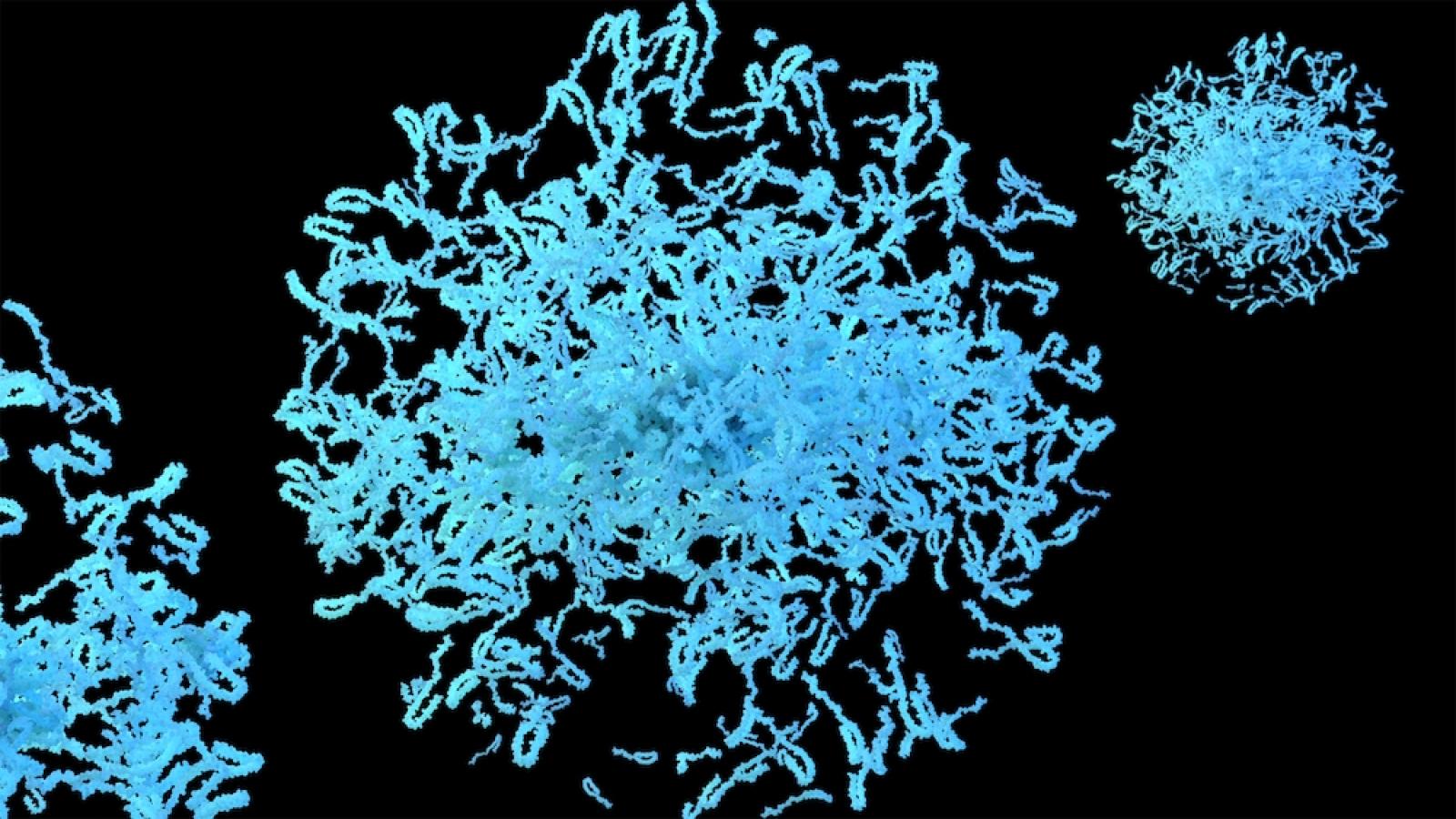The symptoms of Parkinson's usually only start to appear when the disease has already caused substantial damage to neurons in the brain. There is a need for innovative new methods to detect the disease at a far earlier stage, before symptoms start and cells have already died.
Dr Cynthia Sandor, former Emerging Leader at the UK DRI at Cardiff, joins the UK DRI at Imperial as a Group Leader, where she will be tackling early diagnosis of Parkinson’s. With a background in genetics, Dr Sandor uses computational methods to bring greater understanding to the underlying molecular mechanisms of Parkinson’s. At the UK DRI at Cardiff, Dr Sandor and her team developed machine learning approaches to understand and predict clinical presentation and disease progression in people living with Parkinson’s. Here, she explains how her new programme will expand and build on this knowledge, and where she hopes her work will lead.

With Dr Cynthia Sandor
UK DRI at Imperial
What will your new programme focus on, how does it differ from your programme at Cardiff?
I’ll still be working on Parkinson’s, but in a different timeframe. At Cardiff, I was focused on understanding why patients present differently in terms of disease progression, symptom type and severity when they first come into the clinic. Now, I’ll be looking before clinical diagnosis, at digital and blood biomarkers and how we can detect the disease at an earlier stage. Some of this work will follow on from my study last year that found smart watches could detect Parkinson’s years before clinical diagnosis. That study used UK BioBank data, now we’re going to look at a clinical dataset and see if we get the same results.
What is the ultimate aim of your work?
To identify Parkinson’s and related disorders earlier than is currently possible. This will make a huge difference in trials for new drugs and when these treatments begin to emerge. By the time someone starts experiencing symptoms of Parkinson’s, they have already lost 50% of neurons in the substantia nigra, so earlier diagnosis really is key to ensuring future treatments can be administered when they are most likely to be effective.
Why did you choose to join the UK DRI at Imperial?
I was offered a lectureship position through the Edmond Safra Foundation, which is a fantastic opportunity and the dream of all Emerging Leaders and fellows! My research is mainly computational, and Imperial is a leading institution for computational research, so I feel extremely lucky to have secured this rare position and I had absolutely no hesitation when it was offered to me. Taking on a Group Leader position at the UK DRI, will allow me to collaborate closely with those who are the best in their field and to facilitate the translational application of our research. Parkinson's is a multidisciplinary challenge that requires diverse expertise to advance my research and make it more impactful.
What are you particularly excited about in the Parkinson’s research field at the moment?
I’m fascinated by the new hypothesis of 'brain-first' versus 'body-first' Parkinson’s. This suggests that in some individuals, the disease originates in the brain, while in others, it begins outside the brain, specifically in the enteric nervous system of the gut, often referred to as our 'second brain.’ Understanding where the pathology starts and spreads—drawing a parallel to cancer—can revolutionise our approach to the diagnosis, treatment, and management of not just Parkinson's but alpha-synucleinopathies in general.
Finally, what’s the most important thing you’ve learned from your academic career so far?
Keep going. In academia it is normal to experience failure, and a lot of negative results, but it’s really important to practice endurance and keep going, don’t give up.
To find out more about Dr Cynthia Sandor's work, visit her UK DRI profile.
Article published: 12 March 2024
Banner image: Shutterstock/Alpha Tauri 3d graphics
